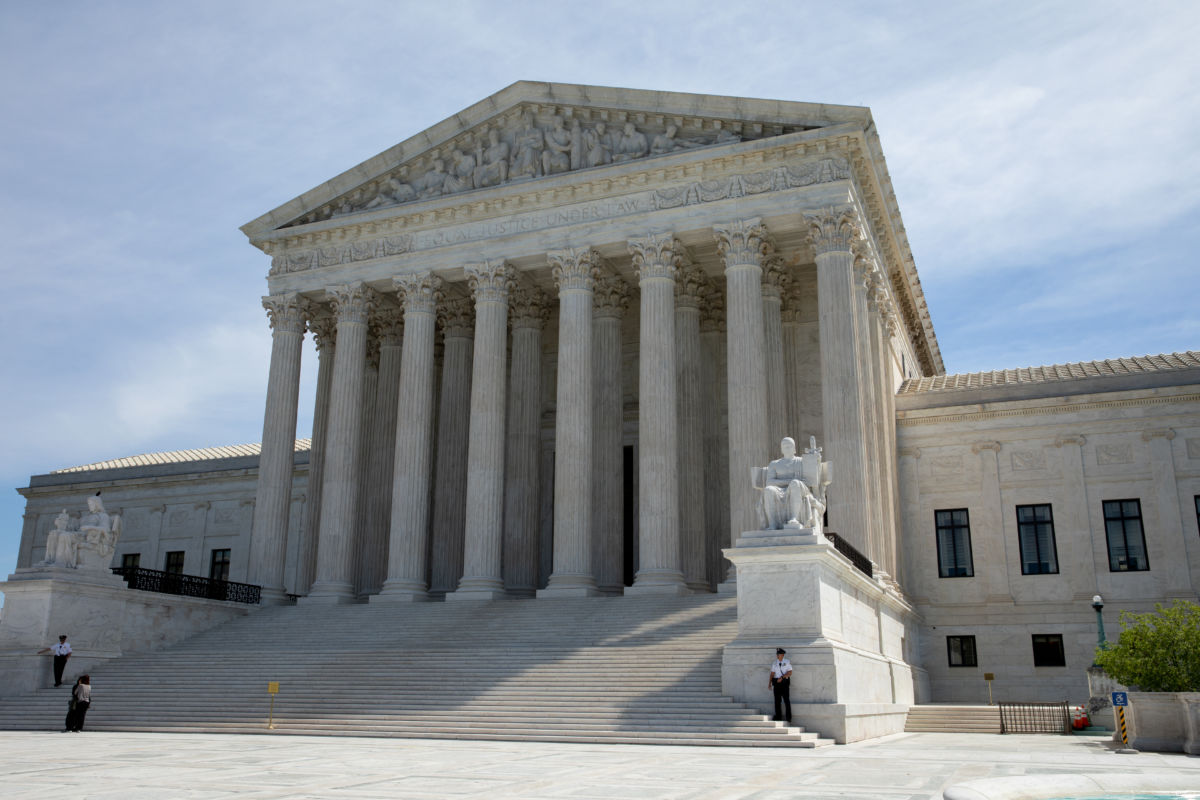Honest, paywall-free news is rare. Please support our boldly independent journalism with a donation of any size.
Anyone who tries to tell you that corruption is only a Republican problem or only a Democratic problem is a partisan hack. Corruption is not the exclusive province of one political party and never has been. Two recent scandals show that corruption is a bipartisan problem.
On the Republican side, earlier this month, conservative operative David Bossie was accused of misdirecting funds he had ostensibly been raising for Trump-aligned Republican candidates. According to a Campaign Legal Center and Axios investigation into Bossie’s Presidential Coalition political organization, only about $425,000, or 3 percent, of its 2017–2018 spending went to direct political activity. The organization, which raised $13 million last year, spent most of its money on more fundraising. More than $650,000 went toward Citizens United and Citizens United Foundation, which Bossie also runs. (Citizens United was the named plaintiff in the 2010 Supreme Court case that allowed corporations to spend unlimited money on political ads.)
This smells to high heaven. There hasn’t been much criminal litigation involving super PACs, so it’s uncertain whether federal prosecutors could go after Bossie or the Presidential Coalition for defrauding donors. The Trump 2020 campaign distanced itself from Bossie and issued a statement condemning “any organization that deceptively uses the President’s name, likeness, trademarks, or branding and confuses voters.”
On the Democratic side, just days earlier, on May 2, Catherine Pugh, the Democratic mayor of Baltimore, announced she would resign amid allegations that, as a hospital board member, she engaged in a quid pro quo with the University of Maryland Medical System to buy 100,000 copies of a self-published children’s book she had written. The allegation is that no one bought the mayor’s book except for healthcare companies that wanted business from the city and state. (The book, Healthy Holly, targeted African American readers and encouraged healthy eating habits.) Pugh is no longer in power, but federal prosecutors may still bring a case for honest services fraud against her. The FBI has already raided her office and two homes.
In both cases, it may be more difficult for federal prosecutors to bring charges than it would have been a decade ago. As I explain in my new book, Political Brands, Supreme Court decisions like Citizens United and McCutcheon, which ruled that certain limits on campaign financing were unconstitutional, severely narrowed the definition of what counts as corruption. For example, granting special access to elected officials for rich donors is no longer considered corrupt by the Roberts Court. Convicted politicians like ex-Governor of Illinois Rod Blagojevich have cited Citizens United and McCutcheon as reasons why they should not be held criminally liable. This allowed Blagojevich to be resentenced.
And in the area of white-collar crime, the Roberts Supreme Court in Skilling, which considered the conviction of former Enron CEO Jeff Skilling, narrowed what counts as honest services fraud and McDonnell, which considered the conviction of Governor of Virginia Bob McDonnell, defined bribery down by narrowing what counts as an official act by an elected official. Both Skilling and McDonnell make it harder to prosecute corruption. Moreover, these decisions have given appeals courts leeway to overturn multiple convictions against elected officials on corruption charges.
Indeed, no one is happier about the Supreme Court’s rebranding of corruption than sketchy politicians. In 2017, citing McDonnell, an appeals court overturned former New York State Assembly speaker Sheldon Silver’s 2015 corruption conviction for accepting over $4 million in bribes. He was found guilty in 2018 in a second trial on another charge. Silver is still appealing this second conviction and the Second Circuit has ruled he can remain free while he appeals. Former New York Majority Leader Joseph Bruno’s 2009 conviction for mail fraud was also vacated by an appeals court citing Skilling, and he went on to be exonerated by his second jury.
The successful prosecution of corruption is not totally dead. The president’s former personal lawyer Michael Cohen just reported to federal prison for, among other crimes, two campaign finance violations. As the prosecutors noted in Cohen’s sentencing memorandum, “Campaign finance crimes, because they are committed in secret and hidden from the victims, are difficult to identify and prosecute. Nonetheless, they have tremendous social cost…as they erode faith in elections and perpetuate political corruption.”
DOJ should treat news of Bossie’s follies with the same seriousness as Pugh’s book deals. Politics should be more than a cover for get-rich-quick schemes. And since corruption is a bipartisan phenomenon, both Republican Bossie and Democratic Pugh should be held to the same ethical standard.
The views expressed are the author’s own and not necessarily those of the Brennan Center for Justice.
A terrifying moment. We appeal for your support.
In the last weeks, we have witnessed an authoritarian assault on communities in Minnesota and across the nation.
The need for truthful, grassroots reporting is urgent at this cataclysmic historical moment. Yet, Trump-aligned billionaires and other allies have taken over many legacy media outlets — the culmination of a decades-long campaign to place control of the narrative into the hands of the political right.
We refuse to let Trump’s blatant propaganda machine go unchecked. Untethered to corporate ownership or advertisers, Truthout remains fearless in our reporting and our determination to use journalism as a tool for justice.
But we need your help just to fund our basic expenses. Over 80 percent of Truthout’s funding comes from small individual donations from our community of readers, and over a third of our total budget is supported by recurring monthly donors.
Truthout has launched a fundraiser to add 379 new monthly donors in the next 6 days. Whether you can make a small monthly donation or a larger one-time gift, Truthout only works with your support.
